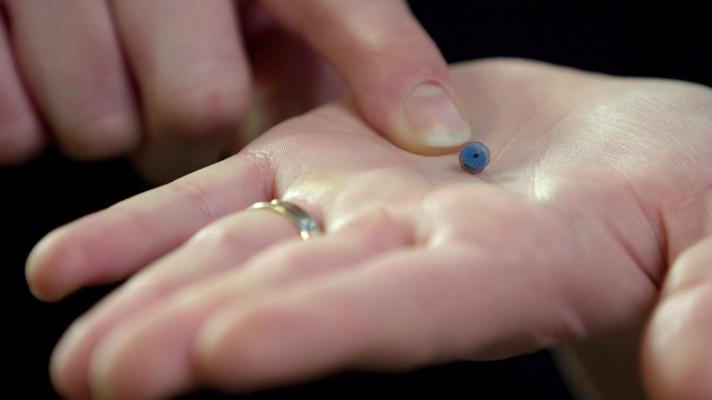
September 20, 2019 – Abbott announced approvals in Europe for two of its pediatric devices — the Masters HP 15mm rotatable mechanical heart valve and the Amplatzer Piccolo Occluder. Both devices have received CE Mark and are now available in Europe and other countries that recognize CE Mark. The new treatments, already available in the U.S., offer young pediatric patients and their families hope when no other suitable treatment option may exist.
Congenital heart defects (CHD) affect approximately 36,000 births in the European Union each year[1]. Abbott calls the Masters valve the world's smallest mechanical heart valve, allowing doctors to treat babies and toddlers in need of a mitral or aortic heart valve replacement. The Amplatzer Piccolo is smaller than a pea and is the world's first medical device that can be implanted in the tiniest babies (weighing as little as under one kilogram) to treat patent ductus arteriosus (PDA), a potentially life-threatening opening in the heart.
The Masters valve is the first and only pediatric mechanical heart valve developed for newborns and infants, according to Abbott. The valve is a rotatable, bileaflet mechanical heart valve designed for implantation in the mitral or aortic position and is part of the Masters Series line, which now includes seven valves with diameter sizes ranging from 15 to 27mm.
When the tissues of the heart valve have a significant malformation or are too damaged and cannot be repaired to function properly, it may be necessary to replace the valve with a mechanical valve. A mechanical heart valve mimics a healthy heart valve, opening and closing with each heartbeat, permitting proper blood flow through the heart.
Until Abbott's device, surgeons could only use a range of larger-sized valves to replace a pediatric heart valve that could not be repaired, which could result in improper fit and complications. The Masters pediatric valve was approved in the United States in March 2018 and in Canada in October 2018.
The Amplatzer Piccolo, approved in the U.S. in January 2019, is indicated to treat PDA, one of the most common congenital heart defects occurring in premature babies that creates a potentially life-threatening opening between two blood vessels which lead from the heart.This channel, which is present in normally developing fetuses, is important prior to birth to allow oxygen-rich blood from the mother to circulate throughout the fetus' body. For most infants, the pathway, or duct, seals itself shortly after birth. In some cases, primarily in babies born prematurely, the PDA fails to spontaneously close, which can make it difficult for babies to breathe normally due to increased blood flow to the lungs. PDA accounts for up to 10 percent of all congenital heart disease[2].
The Amplatzer Piccolo is a self-expanding, wire mesh device that is inserted through a small incision in the leg and guided through vessels to the heart, where it is placed to seal the opening in the heart. Many of the premature babies who are critically ill in the neonatal intensive care unit are able to be weaned from artificial respirator support soon after the minimally invasive procedure.
“Seeing the youngest patients fight for their lives is harrowing, and finally having solutions that can offer a dependable treatment option to get these little ones out of the NICU and sent home with their families is a huge advance in our field,” said Mario Carminati, M.D., director of pediatric and adult congenital cardiology at IRCCS Policlinico San Donato, Milan, Italy.
For more information: www.abbott.com
References
1. Dolk H., Loane M., Game E., et al. Congenital heart defects in Europe: prevalence and perinatal mortality, 2000 to 2005.” Circulation 123 8 (2011): 841-9.
2. Schneider D.J., Moore J.W. (2006). Patent ductus arteriosus. Circulation, 114(17), 1873-18.


 November 14, 2025
November 14, 2025 









